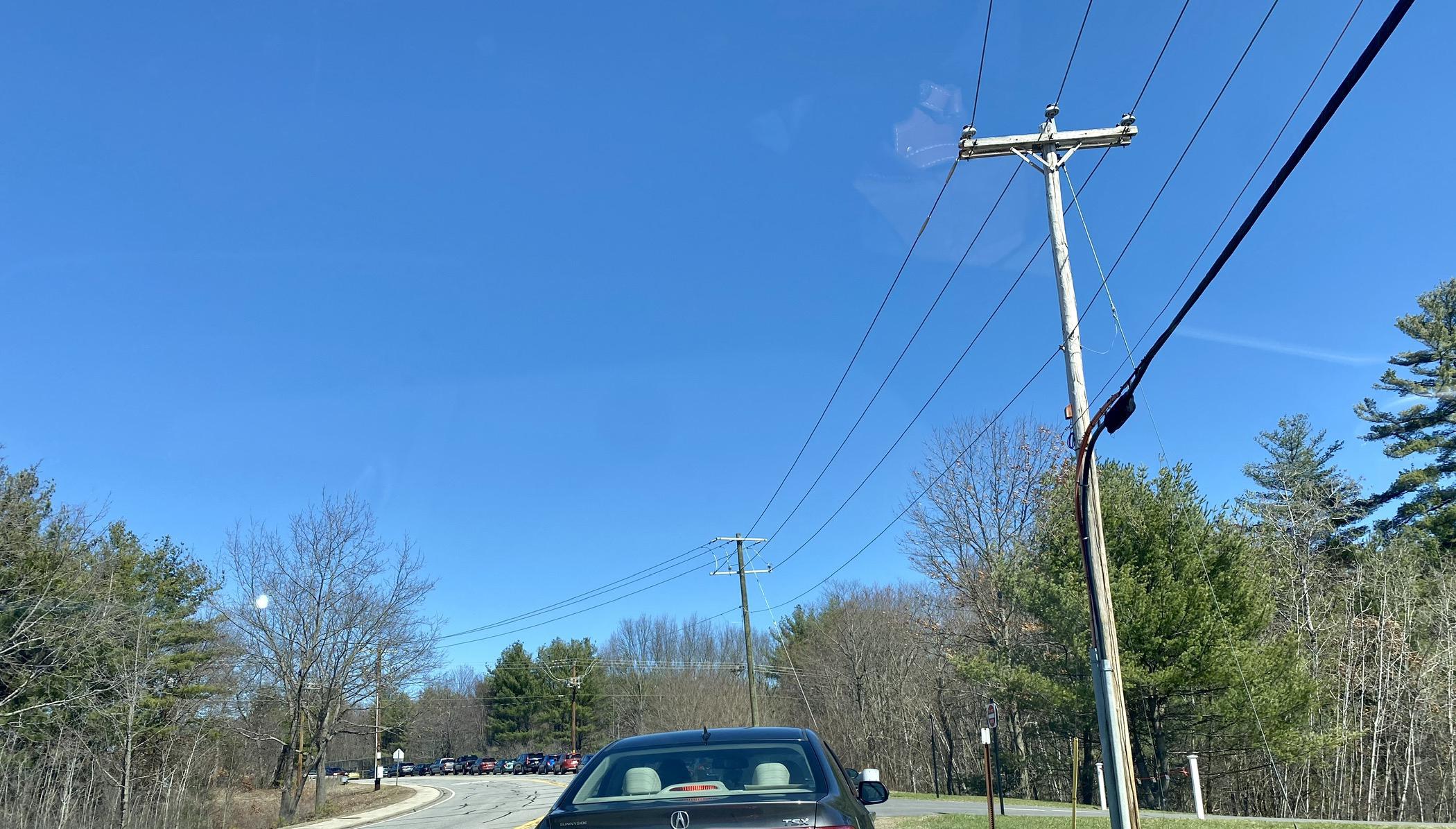By GARRY RAYNO, Distant Dome, InDepthNH
Gov. Chris Sununu once again last week proposed a Northern Pass lite, high-voltage transmission system to bring now cheap HydroQuebec power to New Hampshire to offset spiking energy costs.
While the proposal sounds good and is strategic politically, the reality is New Hampshire lags all of its neighbors in working to reduce emissions, increase energy efficiency and encourage the development of alternative fuels to generate electricity, all things that would serve to both help the planet and reduce the cost of energy.
The Sununu administration has proposed two energy policies in the last six years with cheaper energy the driving factor and that translates into continued reliance on fossil fuels.
The plan stands in contrast to what other New England states’ energy policies propose with mandated emission reduction goals and increased renewable energy sources.
Two decades ago, New Hampshire was ahead of its neighbor by requiring more renewable energy in utilities’ energy portfolios, although there never was a real penalty if they did not comply.
The energy market now is different than it was several years ago, and New Hampshire is caught relying on fossil fuels when alternative sources are cheaper, with fewer options than other New England states.
Two years ago, natural gas prices were cheap with some saying they were artificially low and that is important because most of the energy generated in New England is from burning natural gas, a cleaner fossil fuel than oil or coal, but still a fossil fuel that emits significant amounts of carbon dioxide when it burns.
New Hampshire is the site of several good-sized wind farms, but utilities stopped proposing them when the federal tax incentives ended and were not renewed by the Trump administration.
The state’s largest is Granite Reliable Wind Farm in Coos County with 33 turbines across four mountain ridges producing 99 megawatts of electricity.
Much of the power from Granite Reliable is sold to Vermont utilities. The Coos Loop transmission line does not have the capacity to transport the maximum power the wind farm generates and has been a point of contention with Eversource, which believes the owners of the wind farm should upgrade the transmission system, not Eversource which owns the Loop.
The original Northern Pass project would have upgraded the North Country transmission system as part of the work, but was not done when the project was rejected. The transmission line would have transferred 2,000 megawatts of electricity from HydroQuebec to Massachusetts, but just traveled through New Hampshire.
The project was extremely controversial for both environmental and economic reasons and was turned down by the state Site Evaluation Committee unanimously. Sununu supported the program and eventually replaced all of those members of the committee, which has been reconstituted and more controlled by the administration through the Department of Energy.
The process from Eversource’s initial Northern Pass application to the state Supreme Court siding with regulators’ objection, was over a decade and cost the company $318 million including $40 million for land acquisition.
The idea of resurrecting Northern Pass has not escaped some of the project’s long-time opponents.
“We’re keeping our eye on it,” said Jack Savage, president of Society for the Protection of New Hampshire Forests.
Sununu floated the idea of a Northern Pass for HydroQuebec power at a gubernatorial debate with Democratic candidate Tom Sherman this fall, and again last week at a press availability after the Executive Council meeting. He offered it as a way to help reduce the cost of electricity for customers that has doubled since Russia invaded Ukraine.
Even if a new transmission line were proposed, it would be years before any Canadian hydropower flowed to New Hampshire, and it would not be of any help in the foreseeable future to lower the skyrocketing rates.
By the time the transmission line is built, better technology is bound to be available allowing what is called a distributed network using local sources with greater emphasis on renewable energy like wind, solar and small hydro.
And HydroQuebec is not an infinite source of electricity and the state might better look to the Maritimes if it wants to go in that direction where the energy could flow underwater to New England and New Hampshire.
The new push for hydro power is a switch for Sununu who has done little to push alternative energy sources during his tenure in office outside of paying lip service to off-shore wind.
He vetoed a number of bills over a couple of legislative sessions that would have expanded the net metering program where the utilities pay customers for their excess electricity from solar power panels on roofs or in yard arrays.
The push to expand the amount of megawatts the utilities would buy would have encouraged municipalities and school districts and larger businesses to install solar panels to generate electricity.
A watered-down expansion finally made it past the governor’s veto pen last year but now many of the federal incentives for putting up solar panels are no longer available.
The utilities have never been big fans of net-metering saying it is an unreliable stream and more costly to customers without solar panels. Their opposition may have something to do with the state’s current energy policy.
Another slow moving initiative to save residential and small business customers money, like large industrial or commercial customers do has finally begun to get off the ground.
Aggregating communities or regions to be able to access the wholesale market is finally bringing the benefits of electric deregulation to smaller users.
Read the rest of the story at InDepth NH.
Garry Rayno may be reached at garry.rayno@yahoo.com.
Distant Dome by veteran journalist Garry Rayno explores a broader perspective on the State House and state happenings for InDepthNH.org. Over his three-decade career, Rayno covered the NH State House for the New Hampshire Union Leader and Foster’s Daily Democrat. During his career, his coverage spanned the news spectrum, from local planning, school and select boards, to national issues such as electric industry deregulation and Presidential primaries. Rayno lives with his wife Carolyn in New London.

